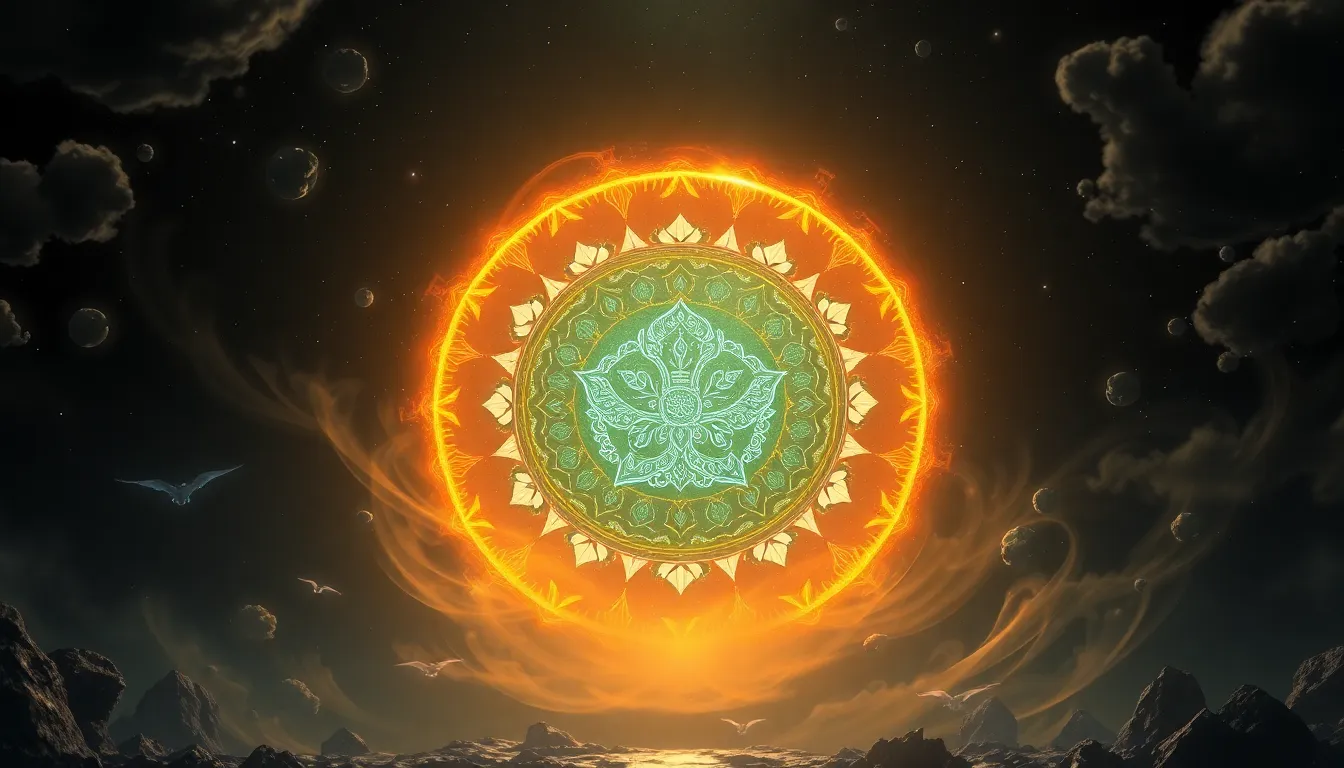The Price of Offending the Gods: Legendary Myths Explored
Introduction to Divine Retribution
The concept of offending the gods is a recurring theme in various cultures, often serving as a cautionary tale about the consequences of human actions. Myths and legends from around the world illustrate how divine beings respond to transgressions, reflecting societal values and moral codes. These stories not only inform us about ancient beliefs but also provide insight into human behavior and the timeless struggle between hubris and humility.
The Role of Gods in Ancient Civilizations
In ancient civilizations, gods held significant sway over the lives of individuals and communities. The pantheon in cultures such as Greek, Roman, Norse, and Egyptian mythology was rich and diverse, with each deity embodying various aspects of life, nature, and morality.
- Greek Mythology: Gods like Zeus, Hera, and Athena influenced everything from governance to personal conduct.
- Roman Mythology: Deities such as Jupiter and Venus were integral to the cultural identity and moral expectations of the Roman Empire.
- Norse Mythology: Figures like Odin and Thor represented the harsh realities of life, including the importance of bravery and loyalty.
- Egyptian Mythology: Gods such as Osiris and Isis were central to concepts of life, death, and the afterlife, emphasizing balance and justice.
These deities not only shaped societal norms but also provided a moral framework, rewarding virtue and punishing vice.
Common Themes of Divine Punishment
Across various mythologies, certain themes related to divine punishment recur, highlighting the consequences of offending the gods. Common motifs include:
- Hubris: Excessive pride or self-confidence that leads to downfall.
- Transgression: Violating divine laws or norms.
- Retribution: The inevitable punishment that follows an offense against the divine.
These stories often serve as reminders of the fragility of human existence and the importance of humility before greater powers.
Case Study: Prometheus and the Gift of Fire
The myth of Prometheus is a powerful example of divine retribution in Greek mythology. Prometheus, a Titan, defied Zeus by stealing fire from the gods and giving it to humanity. This act of rebellion was not merely a gift; it symbolized knowledge, enlightenment, and the spark of civilization.
As punishment for his transgression, Zeus condemned Prometheus to eternal torment. He was bound to a rock where an eagle would eat his liver daily, only for it to regenerate each night, ensuring his suffering was perpetual. This myth highlights themes of sacrifice, the quest for knowledge, and the dire consequences of challenging divine authority.
The Story of Niobe: A Tale of Hubris
Another poignant example of divine retribution is the story of Niobe, a queen who boasted about her children, claiming superiority over the goddess Leto, who had only two children, Apollo and Artemis. Niobe’s pride, or hubris, angered the gods.
In retaliation, Apollo and Artemis killed all of Niobe’s children, leaving her in profound grief. This myth explores themes of parental love, the pain of loss, and the disastrous consequences of overstepping one’s bounds. Niobe’s story serves as a cautionary reminder of the dangers of pride and the importance of respecting the divine order.
The Norse Perspective: Loki and His Punishments
Loki, a complex figure in Norse mythology, embodies the archetype of the trickster and the consequences of offending the gods. Known for his cunning and deceit, Loki’s actions often led to chaos among the gods.
His most significant offense was orchestrating the death of the beloved god Baldr. As punishment, Loki was bound in a cave with a serpent dripping venom onto his face, causing him immense suffering. This myth not only showcases the theme of retribution but also foreshadows Ragnarok, the end of the world in Norse mythology, where Loki plays a pivotal role as a harbinger of chaos.
The Egyptian Deities: Maat and the Scale of Justice
In Egyptian mythology, the concept of Maat represents truth, balance, and cosmic order. The gods were deeply concerned with maintaining Maat, and any offense against this principle could lead to severe consequences.
For instance, in the myth of Osiris, Set’s betrayal and murder of his brother Osiris disrupt Maat, leading to a series of events that ultimately result in chaos and imbalance in the world. The weighing of the heart against the feather of Maat in the afterlife further illustrates the importance of living a just life, with repercussions for those who offend the natural order.
Cultural Reflections: Myths as Moral Lessons
Myths serve as more than mere stories; they are moral lessons that reflect societal values. The tales of divine retribution resonate with audiences, reinforcing the idea that actions have consequences. These stories often act as cautionary tales, teaching important lessons about humility, respect, and the nature of justice.
In many cultures, these myths have become foundational narratives that shape ethical behavior and social norms, reminding individuals of the importance of living in harmony with both human and divine laws.
Modern Interpretations of Ancient Myths
The themes of divine retribution and moral lessons found in ancient myths continue to resonate in modern literature and media. Contemporary works often draw inspiration from these ancient stories, exploring similar themes of hubris, justice, and the consequences of defying higher powers.
- Literature: Novels such as “The Silence of the Girls” by Pat Barker reinterpret classical myths, exploring the perspectives of characters often overlooked in traditional narratives.
- Film: Movies like “Thor” and “Clash of the Titans” bring ancient myths to life, infusing them with modern sensibilities while retaining core themes of divine conflict and human folly.
- Television: Series such as “American Gods” delve into the relevance of ancient deities in contemporary society, illustrating how these old stories continue to influence and inform modern life.
Conclusion: The Timeless Nature of Divine Retribution
The exploration of myths surrounding divine retribution reveals deep insights into human nature and morality. From the tales of Prometheus and Niobe to the complexities of Loki and Maat, these stories remind us of the consequences of our actions and the importance of humility.
As we reflect on these timeless narratives, we see their enduring relevance in today’s world, serving as both cautionary tales and moral guides that continue to shape our understanding of justice, personal responsibility, and the intricate relationship between humanity and the divine.



